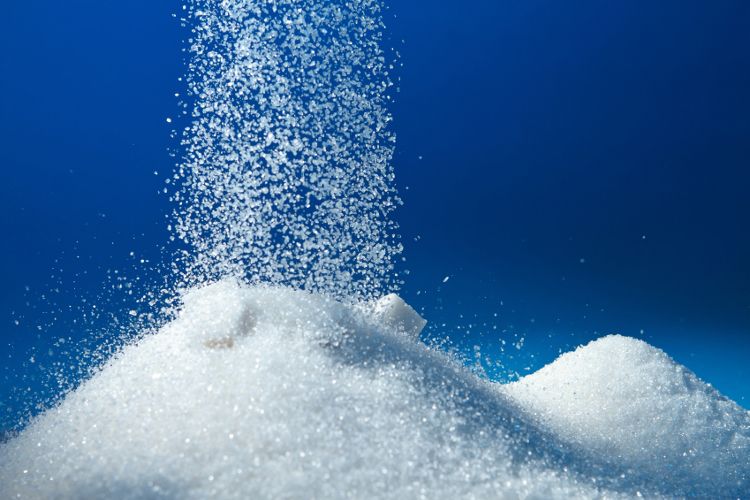Allulose attenuates postprandial glycemic and insulinemic response when combined with sucrose says recent study
Glycemic and insulinemic response was significantly reduced when allulose was combined with sucrose.
Photo © iStockphoto.com/Maksud_kr

A recent randomized controlled trial1 compared the postprandial glycemic and insulinemic response of allulose alone or when added to sucrose. In the study, 14 subjects with diabetes were studied on three separate occasions. Each time, subjects consumed beverages containing 15 g of allulose, 15 g of allulose and 30 g of sucrose, or 30 g of sucrose, and evaluated over the course of 120 minutes. Researchers used a branded allulose called allSWEET from Anderson Advanced Ingredients.
Results showed that glucose iAUC after subjects consumed the allulose and sucrose beverage was 24% less compared to sucrose alone, while those consuming the beverage with allulose alone has iAUC that was significantly less than those taking allulose and sucrose combined or sucrose alone. Insulin iAUC was 33% less for the allulose and sucrose group compared to sucrose alone, and significantly greater than allulose alone. According to the researchers, these results demonstrate that when added to sucrose, allulose attenuates both postprandial glucose and insulin response.
“The study adds to a growing body of literature on the dampening effects of allulose consumption on glycemic and insulin responses. The results are impressive because allulose does not appear to behave like non-nutritive or low-calorie sweeteners. It appears to be unique in this respect,” said Nick Bellissimo, PhD, Toronto Metropolitan University associate professor, in a press release. According to the press release, Bellissimo is an allulose expert.
“allSWEET is unique in that it is a naturally occurring rare sugar with the same taste and texture of sucrose but does not affect glycemic response and has a negligible energy content,” added Bellissimo. “Given reformulation efforts currently underway to reduce the sugars content of food and beverages, allulose may be well positioned to offer significant functional advantages over other ingredients. While more research is needed, allSWEET does appear to be in a category of its own.”
Reference
Au-Yeung, F.; Jenkins, A.L.; Prancevic, S.; Vissers, E.; Campbell, J.E.; Wolever, T.M.S. Comparison of Postprandial Glycemic and Insulinemic Response of Allulose When Consumed Alone or When Added to Sucrose: A Randomized Controlled Trial. Journal of Functional Foods. 2023, 105: 105569, DOI: 10.1016/j.jff.2023.105569
Survey finds a lack of enthusiasm about AI technology among food and beverage consumers
December 12th 2024The survey, commissioned by Ingredient Communications and conducted by SurveyGoo, found that 83% of respondent agreed that companies should declare on product labels when a product has been designed or manufactured with the assistance of AI technology.
Kelker Pharma to launch nutritional support system for GLP-1 medication users that features TriBsyn
December 11th 2024B&D Nutritional Ingredients Inc., an exclusive distribution partner of CarnoSyn Brands and Natural Alternatives International Inc., announced that its customer, Kelker Pharma, will be launching the “first science-backed nutritional support system” for GLP-1 medication users, called Nutrilinq Genesis.
Standardized valerian extract shows acute sleep benefits after one day, says recent study
December 10th 2024Results showed that after a single dose, people taking the Valerian extract experiences an acute benefit on sleep, namely a significant increase in actual sleep time compared to baseline.